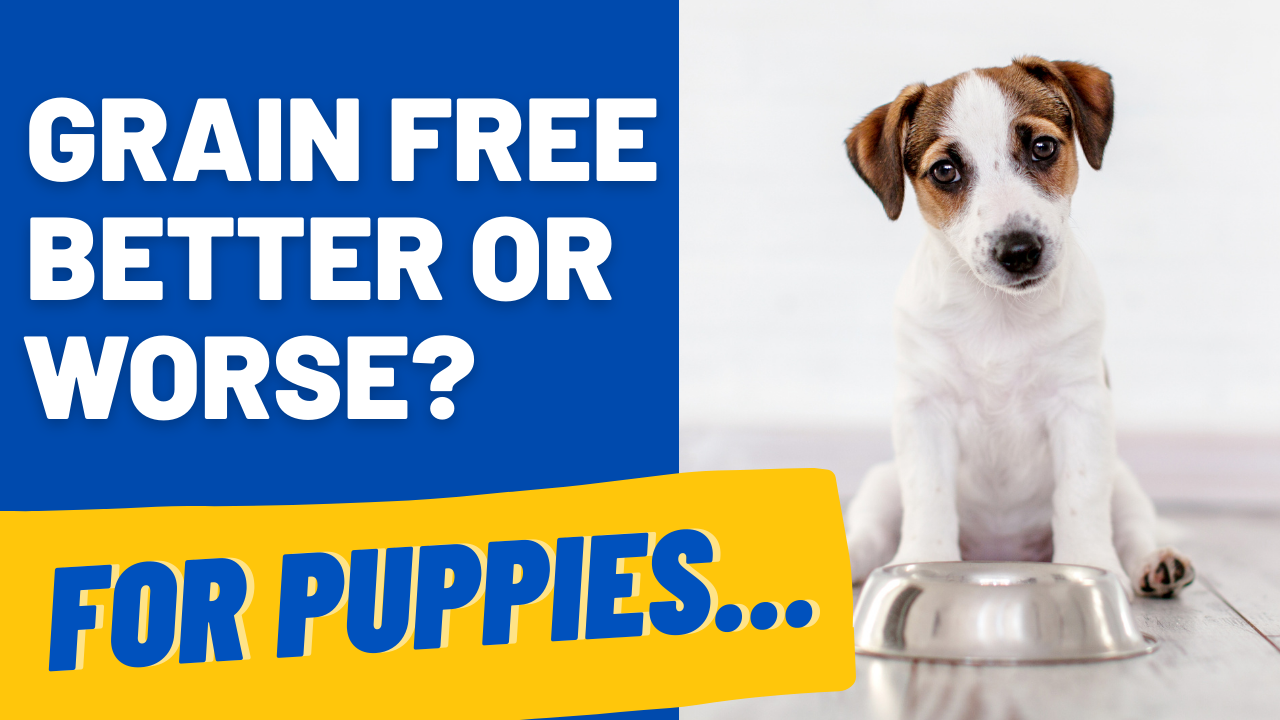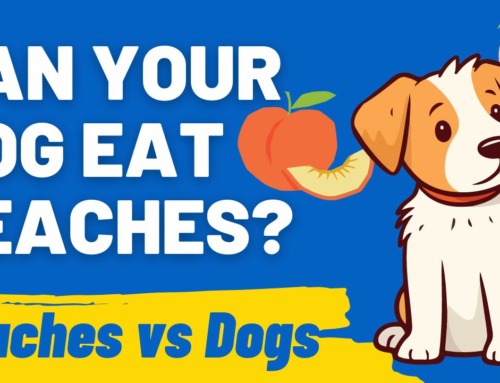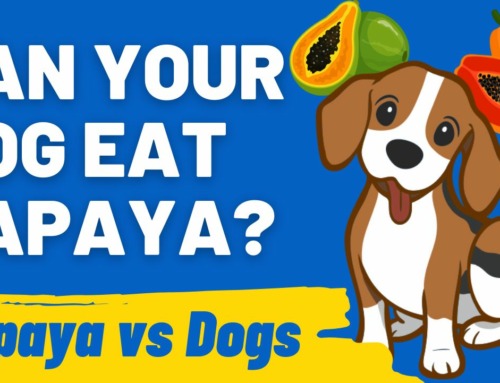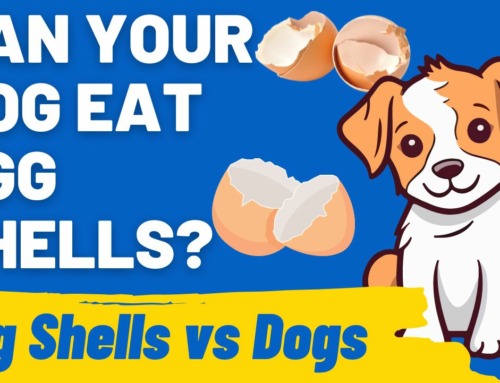We want to feed our puppies the best food for their development and long-term health. And grains are often identified as a problem in dog food. So, should you put your puppy on a grain-free diet, or are grains actually healthy for your dog?
Puppies may indeed need more protein in their diets than adult dogs, but they can’t have an entirely animal product diet. And so is the rest best made up of vegetable carbohydrates, or grains.
Well, the truth is grains have many benefits. So much so, that the current movement on grain-free puppy feeding may one day come to an end, and here’s why…
Is grain necessary for puppies?
No, but they do have a place in a puppy’s diet. Grains provide fuel for a puppy’s energy requirements, can help with gut health, and whole grains assist in controlling blood sugar levels. This is important for puppies.
Puppies can get their carbohydrates from other vegetable sources, like sweet potatoes. However, grains have other benefits that make them a better choice for a balanced diet.
Puppies and dogs are not entirely carnivorous like cats, and usually have no problem digesting grains.
Puppies produce an enzyme called amylase, which allows them to break down the starch in grains.
Grains such as corn contain the starch called amylose, so it is a myth that puppies can’t digest ground and cooked corn or maize.
Corn even contains vital antioxidants such as lutein and zeaxanthin.
This doesn’t mean corn is the best choice for your puppy’s diet. But it’s worth noting that common beliefs about certain ingredients are misleading.
Grains help fuel a puppy’s energy requirements and should be balanced with protein and fats. They also play a beneficial role in canine nutrition.
But as with all things, nothing should be given in excess, including grains.
We recommend fresh food delivery services for dogs to avoid all feeding problems, as the orders are made for your specific dog. You can read more about one such service here, PetPlate: Should You Use It?
For all our puppy feeding recommendations, be sure to read our post: Best Dry Puppy Food: Small, Medium, Large Breeds
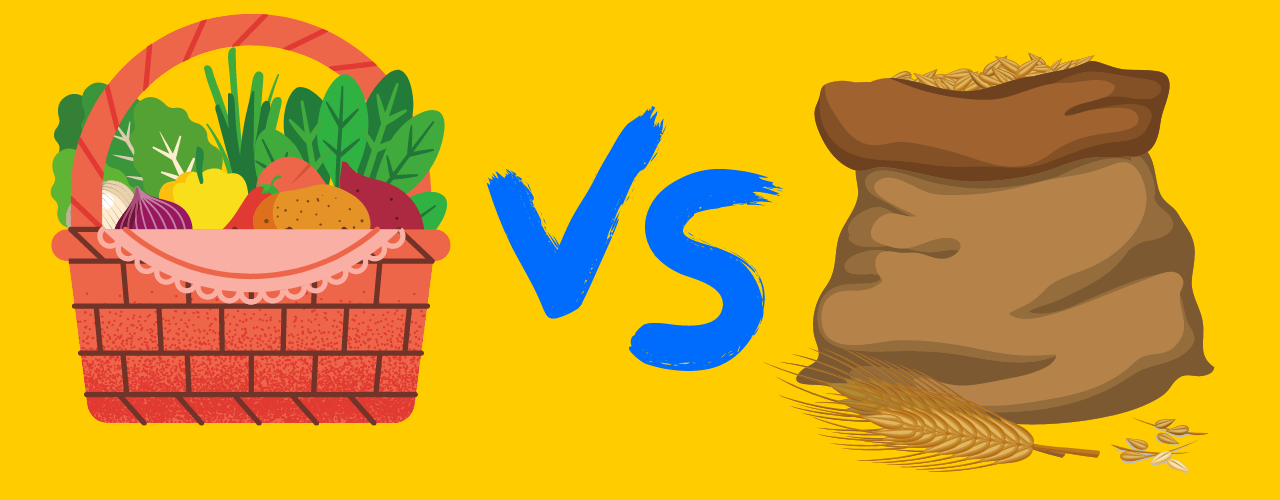
Are vegetables better sources of carbohydrates than grains?
Vegetable carbohydrates are not always ideal for puppies. Potatoes, in particular, are a poor source of nutrition. Sweet potatoes have many benefits but are moderately high in oxalates. This can bind with calcium in the gut, potentially leading to calcium oxalate kidney stones and calcium deficiency.
Some other vegetables considered healthy, such as spinach, have dangerously high levels of oxalates for dogs.
Sweet potato and carrots are also high in potassium and vitamin A (or its precursor, beta-carotene).
Vitamin A is essential for dogs but toxic in excess, like most nutrients. This is what we mean when we talk about dietary imbalances in food.
For example, diets high in ingredients that contain too much of the same nutrients can cause health issues. For instance, many grain-free or gourmet diets might contain sweet potato, liver, carrots, and leafy greens like kale.
But too many of these can create an oversupply of potassium in the food, linked to cardiac arrhythmias, muscle weakness, and even collapse.
The same ingredients contain a lot of vitamin A and beta-carotene. Vitamin A is also stored in the liver, and excessive amounts can lead to vitamin A toxicosis.
This can take weeks or months to realize, as owners are usually unaware there’s too much vitamin A and beta-carotene in their puppy’s food.
It’s also essential to understand the fibers and nutritional properties of different vegetables.
Cruciferous vegetables, such as kale, broccoli, and cabbage, are often goitrogenic, meaning they interfere with iodine uptake.
They also contain the insoluble fiber, lignan, which interferes with iron absorption.
This doesn’t make vegetables bad for your dog, however.
After all, they are rich in powerful antioxidants and phenolic compounds that are great for dogs. It simply points out that nutrition is complex and what looks good for humans is not always the best for your puppy.
Balance is the key!
So while some vegetables provide healthy antioxidants and nutrients in moderation, they are usually not the best substitute for grains.
You might like to read our post, Do Puppies Eat a Lot? (What You Need to Know)
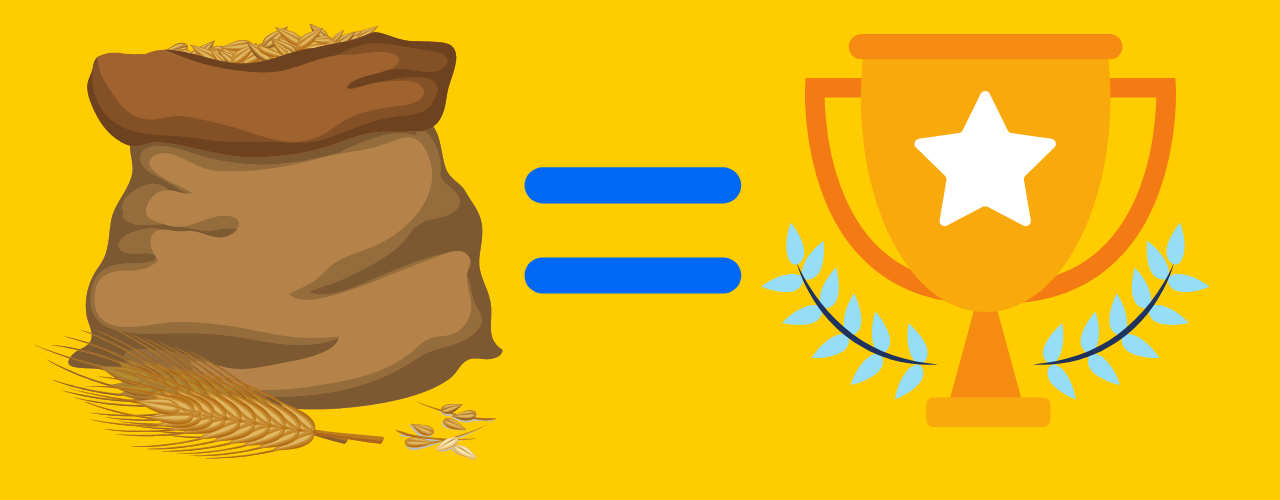
Is grain-free better for puppies?
There is no evidence that grain-free diets are better for puppies. There are three major concerns about grain food for dogs, and none of these are fixed by grain-free diets.
-
Heating dog food during production
Pet foods cooked at extremely high temperatures release pro-inflammatory compounds linked to disease.
Heating any starch at high temperatures releases compounds like aldehydes that are bad for puppies. This is particularly true with animal proteins.
Scorched starch is a known carcinogen.
This is a problem in any dry food or canned food. Since grain-free diets are usually heavily processed and contain some kind of starch to maintain texture, the problem is not fixed by just removing grains.
Grains should be cooked to be digestible but not by extreme heat.
-
Dogs and the wolf diet
There is an argument that dogs are essentially wolves and need all-meat diets. The fact is that the high-protein content (over 30% crude protein) in dog food causes excess phosphorus. This places strain on the kidneys and liver.
Excess phosphorus can also cause bone abnormalities in growing puppies, among other health issues. These diets can also be too high in fat, causing other health risks such as pancreatitis, bloat, diabetes, and more.
-
Grains links to allergies
Grains are frequently blamed for allergies. The problem is that 90% of dog allergies come from their environment, not food. And food allergies that do occur are mostly related to animal proteins like beef or chicken.
So let’s look at the issue of grains and allergies…
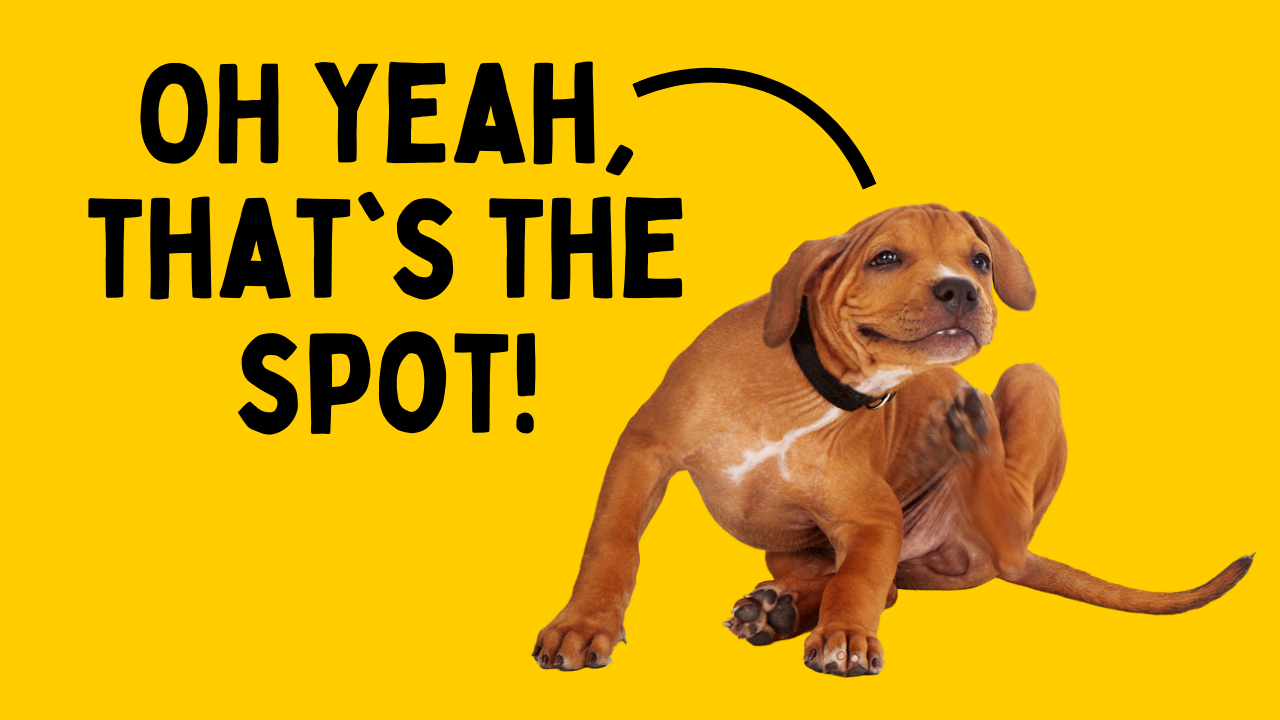
Do grains cause allergies in puppies?
Food allergies affect just 0.2 percent of dogs, and only about 10% of food allergies are thought to come from grains.
It is true that some allergies, like gluten allergies, can run in certain bloodlines like the Irish setter. But, even so, they are extremely rare.
To understand allergies, one needs to know what causes them.
In simple terms, proteins above a certain molecular weight can get through the stomach lining and cause an immune system response.
Proteins can come from plants as well as animal sources. So technically, any protein is a potential allergen.
However, in puppies the most common culprits are:
● Beef
● Dairy
● Egg
● Chicken
● Lamb/mutton
● Pork
● Soy
Nevertheless, allergenic proteins can come from any plant, as all plants contain proteins as well as fats and carbohydrates.
This means soy and wheat are sometimes allergens. As is rice, in much rarer cases.
When carbohydrates are cooked together with protein at extremely high temperatures, it can create protein aggregates that are more allergenic.
This may be why highly processed food may see more food allergies than less processed food.
Allergies are also linked to a healthy gut lining. The mucosal lining in the intestinal tract should stop allergenic proteins from getting through.
This is where grains can actually be helpful. In fact, the polysaccharides in rice and corn can help restore the gut lining.
If a grain allergy occurs, switching grains, such as from wheat to rice, may be better than removing all grains.
Is grain-free bad for puppies?
There is evidence to suggest grain-free diets may be worse for puppies. Grain-free diets often rely on far more plant proteins, starches, and fibers from potatoes, peas, beans, and other legumes and pulses. These substitutes may be harmful by stopping the absorption of critical nutrients.
In 2019, the FDA announced they would be investigating grain-free diets because of a rise in canine dilated cardiomyopathy or DCM.
This type of heart disease is usually genetic, but can also be caused by taurine deficiency. Many dogs not predisposed to DCM on grain-free diets began to develop the condition.
Studies have not proven conclusively that grain-free diets cause DCM or other problems. But it does appear that common ingredients in grain-free food are linked with taurine deficiencies.
This happened in the past when rice bran and even lamb were connected to taurine problems.
Grain-free companies have responded quickly to the issue, and most now add taurine to their food.
Regardless, a dog with no allergy or intolerance to grain is still missing out on many of the potential health benefits that grains can provide in puppy food.
Do vets recommend puppies have grain?
Most vets agree that good grains fed in the right proportions are suitable for puppies. Naturally, there are outliers, as with any profession, and not all vets agree.
Most notably, Dr. Karen Becker takes the stance that grains are not a part of a dog’s biologically appropriate diet. And Dr. Ian Billinghurst, who pioneered the BARF diet and the raw food movement, feels the same. He argues for canine “ancestral” meat-based diets.
While there are strong arguments for less processed puppy food, it’s important to note that dogs have evolved a lot since they were wolves.
For example, research suggests that the average wolf diet contains 54% animal protein, 45% fat, and 1% carbohydrates.
This is a very unhealthy macronutrient profile for a domestic dog.
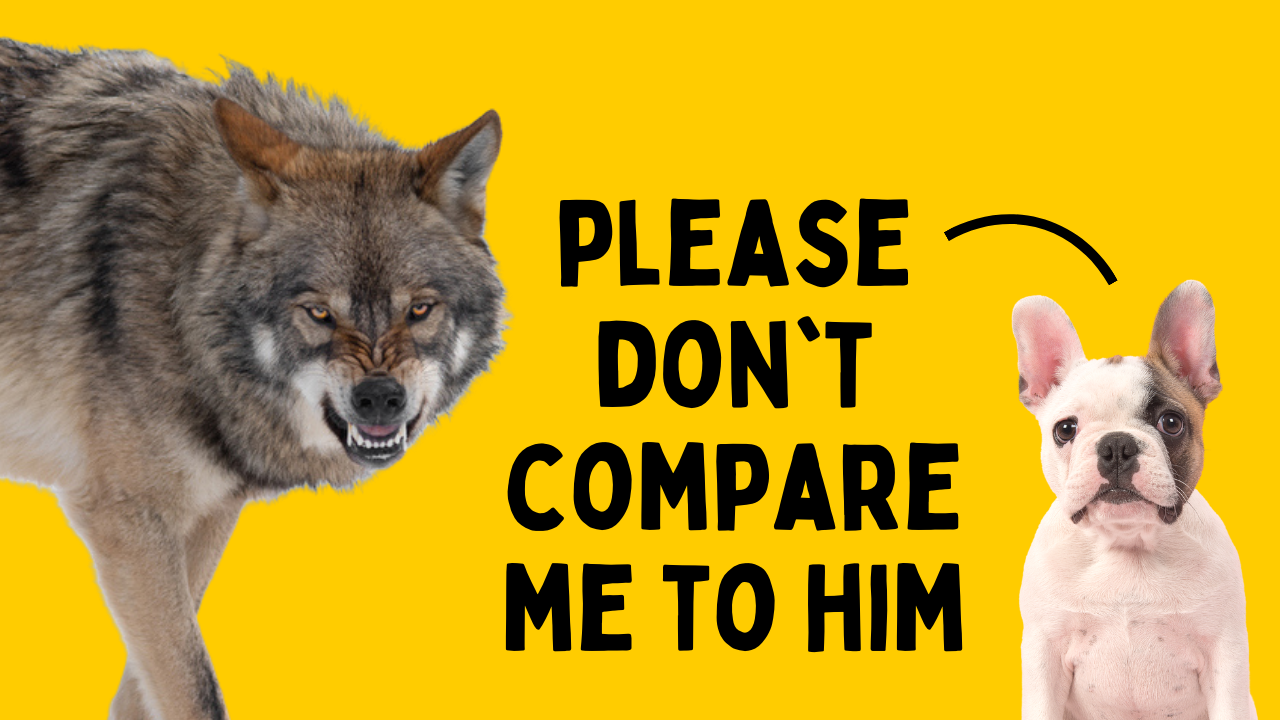
Dogs have evolved to be more omnivorous as they have adapted more than any other animal to coexist with humans.
The domestic dog does not travel the vast distances a wolf does, making all that fat a bad idea. And ultimately, a dog simply has a different metabolism, different enzymes, and a different gut microbiome from a wolf.
Finally, puppies who don’t eat grains are missing some vital nutritional benefits.
What does grain do to puppies?
Grains have several major benefits for puppies.
● Grains that contain resistant starch are helpful for a healthy gut and stop spikes in blood sugar. These include oats, rice, and barley.
● Whole grains have a low glycemic index, which also helps control blood sugar. This is important for puppies.
● Complex carbohydrates protect against oxidative stress and heart disease. These include brown rice, oatmeal, wild rice, and whole barley.
● Grains contain important prebiotic fibers that help feed the good bacteria in your dog’s gut. They also have soluble and insoluble fibers.
These are both important for your puppy’s overall health. Plus they have phenolic compounds that can be powerful antioxidants.
It’s important to remember that grain by-products are not necessarily evil either.
When grains are processed to make flour or a product like white rice, some of the most nutritious parts of the grains are the by-products.
These are products like middlings, rice bran, and oat groats.
Nevertheless, it does not mean that grains should form the bulk of a dog’s diet. Too many carbohydrates are just as harmful as too much fat or protein.
Puppies with itchy skin from yeast problems may benefit from fewer carbohydrates in their diet. A general rule is that carbohydrates should never be more than 40 to 50% of the diet.
You can read our article on puppies and itchy skin here.
What grains should puppies avoid?
Grains like sorghum and millet have poor digestibility and are also goitrogenic. Pseudo grains or ancient grains like quinoa can appear in gourmet dog foods, but there is not much research to support their role in the canine diet.
It’s a myth that dogs can’t digest ground maize, and corn does have some healthy elements such as antioxidants. However, maize should not be the main or only carbohydrate in food since it is goitrogenic and it does have a high glycemic index.
Puppies with sensitive tummies may need more processed grains, like white rice.
Excess fiber in grains like barley can sometimes cause diarrhea or loose stool, while grains with hulls and husks can cause silica kidney stones in rare cases.
Therefore, it is not about avoiding any particular grain for a puppy but rather choosing grains that suit your puppy best.
What are the best grains for puppies?
Choosing the best grains for puppies depends on the individual puppy’s needs. Generally, puppies should eat grains that contain both soluble and insoluble fiber. Whole grains, including wheat, barley, oatmeal, maize, rye, and oats, have benefits.
In fact, it’s better to include a variety of grains as each grain has its own pros and cons.
Large breeds puppies do well with more insoluble fiber, while small breed puppies benefit from more soluble fiber sources.
So here are some of the best grain choices for puppies.
● White rice is a highly digestible carbohydrate that can help puppies with sensitive stomachs and large breed puppies who need digestible starches.
● Brown rice is an excellent source of low-GI, resistant starch, and insoluble fiber.
● Oatmeal contains primarily soluble fiber that helps the gut, mainly by feeding good bacteria. This bacteria releases healthy short-chain fatty acids (SCFAs). It also contains beta-glucans which is excellent for heart health.
● Barley is very nutritious and does well in up to 40% of a dog’s food. But it does cause loose stool, so it may do better as a smaller portion of total carbohydrates in a dog’s diet.
● Rye is highly nutritious and extremely rich in protein and both soluble and insoluble fiber. In particular, the soluble fiber contains arabinoxylans, which, like beta-glucans in oats, is particularly good for gut health.
How do you put grain in puppy food?
Puppy food is best left to a trusted manufacturer who can formulate the correct nutrition and avoid imbalances.
If you are making your dog food at home, be sure to consult a veterinary nutritionist.
If you are making your own, you should boil grains until they are soft and digestible but not scorched or burnt.
This can then be added to your puppy’s essential protein and other nutrients. Mixing it with the yummier meat portions can encourage picky eaters not to skip it.
Is rice or oatmeal better for puppies?
Rice and oatmeal are both great grains for puppies. Both are technically gluten-free, for those that worry about gluten intolerances. They contain resistant starches, low-glycemic indexes, and a number of nutritional benefits.
White rice is highly digestible and is usually a good choice for a puppy recovering from a stomach upset.
Large breed puppies have highly developed caecum and colons. Meaning they will benefit from highly digestible carbohydrates like white rice.
Large breed puppies can also do well with brown rice, as it contains more insoluble fiber and is great for gut motility.
On the other hand, smaller puppies should avoid purified starches, and both white rice and oatmeal are good options for them.
Oatmeal has plenty of soluble fiber like beta-glucans, so oatmeal may be preferable to rice for small breeds.
However, both rice and oatmeal are nutritious, and you can feed both to your puppy.
How do I know if my puppy needs grain or not?
Unless your puppy has a specific intolerance or allergy, grains are a healthy part of a balanced diet. Most health problems that arise from a lack of complex carbohydrates can take months or years to develop. So your puppy may not show any signs that they need grains.
However, you may see signs of poor digestive health, such as diarrhea or constipation. In short, it’s better to incorporate healthy grains into your puppy’s diet from the start.
Waiting may lead to potential health consequences down the line.
Final thoughts
Grains have developed a bad name recently. But it’s important to understand that fad diets for dogs are common just like humans.
Human food trends like clean eating, raw diets, ketogenic diets, and the Atkins diet have all made the leap to dog food in some form or the other.
Unfortunately, following dietary trends blindly can have long-term effects on your puppy’s well-being. It’s possible that within a few short years, the grain-free puppy food diet will be no longer.
This doesn’t mean grains should be fed in excess or that every grain is suited to your specific puppy. But a moderate amount of grains should form part of most puppies’ balanced diet.

